#Metropolitanism
Explore tagged Tumblr posts
Text
The Philosophy of Metropolitanism
The philosophy of metropolitanism centers around the unique social, cultural, and economic dynamics of metropolitan (urban) areas and examines how these environments shape human experience, social structures, and values. Metropolitanism views cities as hubs of diversity, innovation, and complex social interactions, which stand in contrast to more traditional or rural ways of life.
Key Themes in Metropolitanism
Urban Identity and Cosmopolitanism: Metropolitanism often emphasizes cosmopolitan values, where individuals are exposed to a range of cultures, ideas, and lifestyles. Cities foster a sense of open-mindedness and adaptability, as people encounter diversity and interact with individuals from various backgrounds.
Collective and Individual Identity: In metropolitan environments, there is often a tension between collective urban identity (e.g., being a New Yorker, Londoner) and the individual’s quest for uniqueness. City life often supports personal expression while also creating a shared cultural experience within neighborhoods, workplaces, or social circles.
Innovation and Progress: Cities are frequently seen as engines of progress and change. The metropolitan lifestyle values innovation and entrepreneurship, spurred by dense social and economic networks that encourage rapid exchange of ideas, resources, and opportunities.
Alienation and Anonymity: Metropolitanism also considers the challenges of urban life, such as alienation, stress, and a sense of disconnection, despite being surrounded by people. Some argue that cities can lead to impersonal relationships, as individuals are constantly moving and adapting to the fast pace of urban life.
Social Complexity and Hierarchies: Cities create complex social structures, with different socioeconomic classes, professional networks, and communities. Metropolitanism examines how these layers contribute to both opportunity and inequality, and how urban policies impact issues like gentrification, housing, and public services.
Public Space and Community: The philosophy of metropolitanism also considers the importance of public spaces—parks, squares, and cultural sites—in fostering social cohesion and community life. These spaces serve as places for connection, recreation, and political expression, balancing the private and public spheres in dense urban landscapes.
Environmental and Sustainability Concerns: Urban environments are increasingly under scrutiny for their impact on the natural environment, and metropolitanism encompasses discussions on sustainable city planning, green spaces, and the need for eco-friendly solutions to address issues like pollution, traffic, and energy use.
Philosophical Perspectives on Metropolitanism
Urbanism and the Human Condition: Thinkers like Georg Simmel and Walter Benjamin have explored how city life affects the individual’s psyche, noting that the sensory overload and rapid pace of cities influence people’s ways of thinking and relating to one another.
Metropolitanism and Social Theory: Urban theorists, such as Henri Lefebvre, emphasize the “right to the city,” which argues that city residents should have a say in urban planning and access to its resources, promoting an ethical perspective on urban living.
Globalization and Cultural Exchange: Cities are often at the forefront of globalization, and metropolitanism reflects this interconnectedness, where metropolitan areas serve as cultural and economic nodes in a global network. This raises questions about cultural preservation, assimilation, and the impacts of international influence on local customs.
Critiques of Urban Capitalism: Many theorists critique the capitalist structures prevalent in urban centers, arguing that metropolitan areas often become sites of economic disparity, where wealth and poverty are starkly juxtaposed. Scholars like David Harvey analyze how urbanization serves capitalistic interests, often prioritizing profit over the welfare of city dwellers.
Postmodern Urbanism: Postmodernist thinkers suggest that metropolitan life challenges traditional norms and hierarchies, giving rise to new forms of community, identity, and cultural expression. The postmodern city is seen as a space of fragmentation but also of new opportunities for redefining social relations.
Influence and Application of Metropolitanism
Metropolitanism has practical implications in urban planning, sociology, and environmental policy. It influences how cities are designed, addressing issues of accessibility, inclusivity, and sustainability. Additionally, metropolitanism shapes cultural policy and education, as cities are hubs for art, music, and intellectual exchange. It also informs political theory, with cities often being centers for social movements and advocacy for issues like civil rights, environmentalism, and economic equality.
#philosophy#epistemology#knowledge#learning#education#chatgpt#Metropolitanism#Urban Philosophy#Cosmopolitanism#Urban Identity#City Life and Community#Social Theory and Urban Studies
2 notes
·
View notes
Text
8K notes
·
View notes
Text
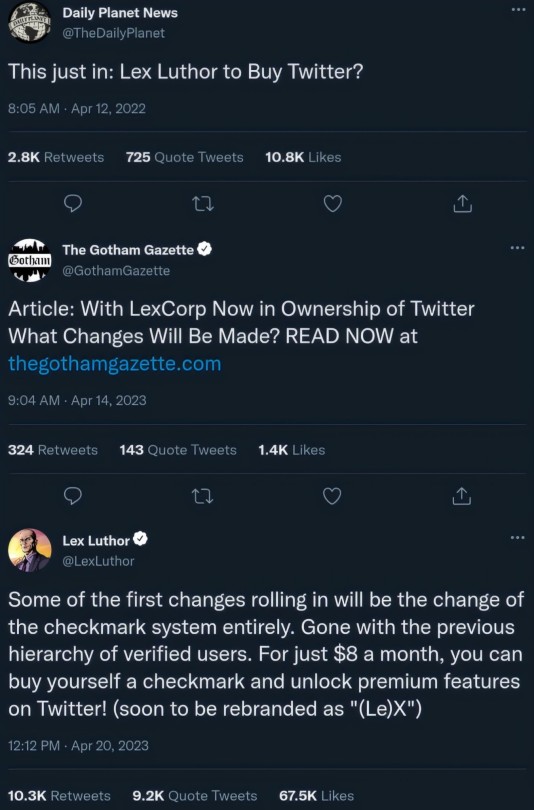
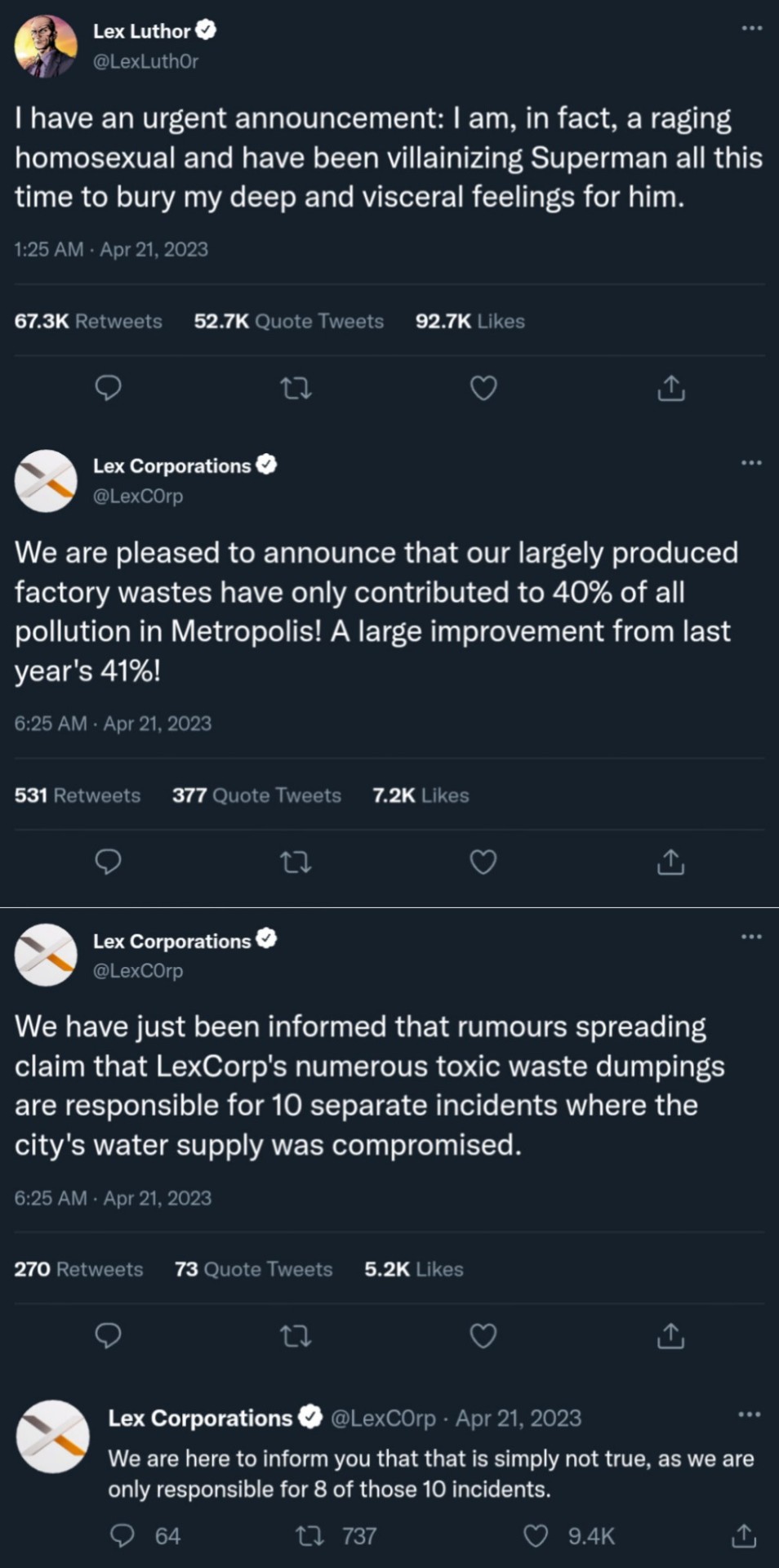
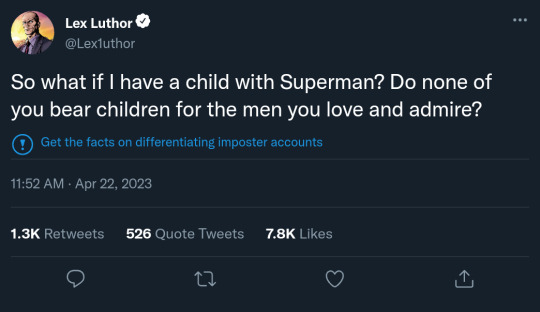
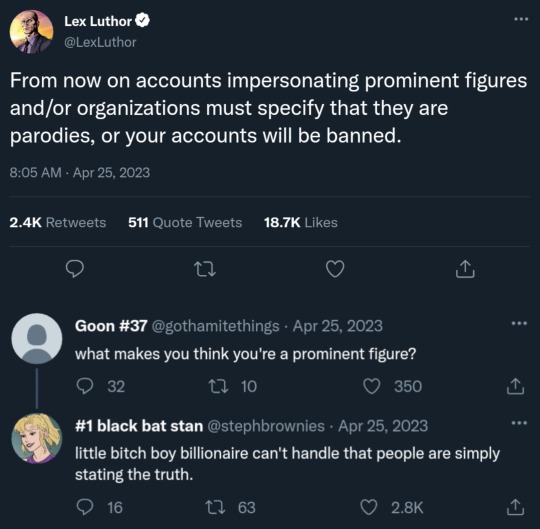




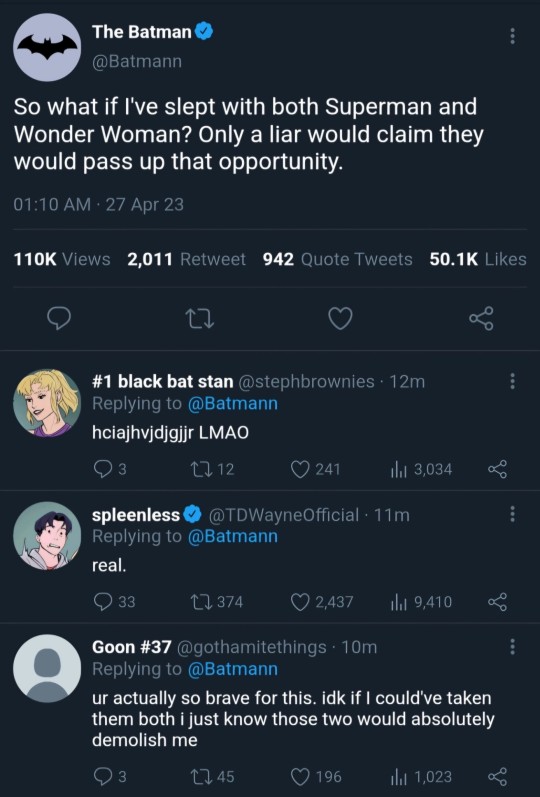
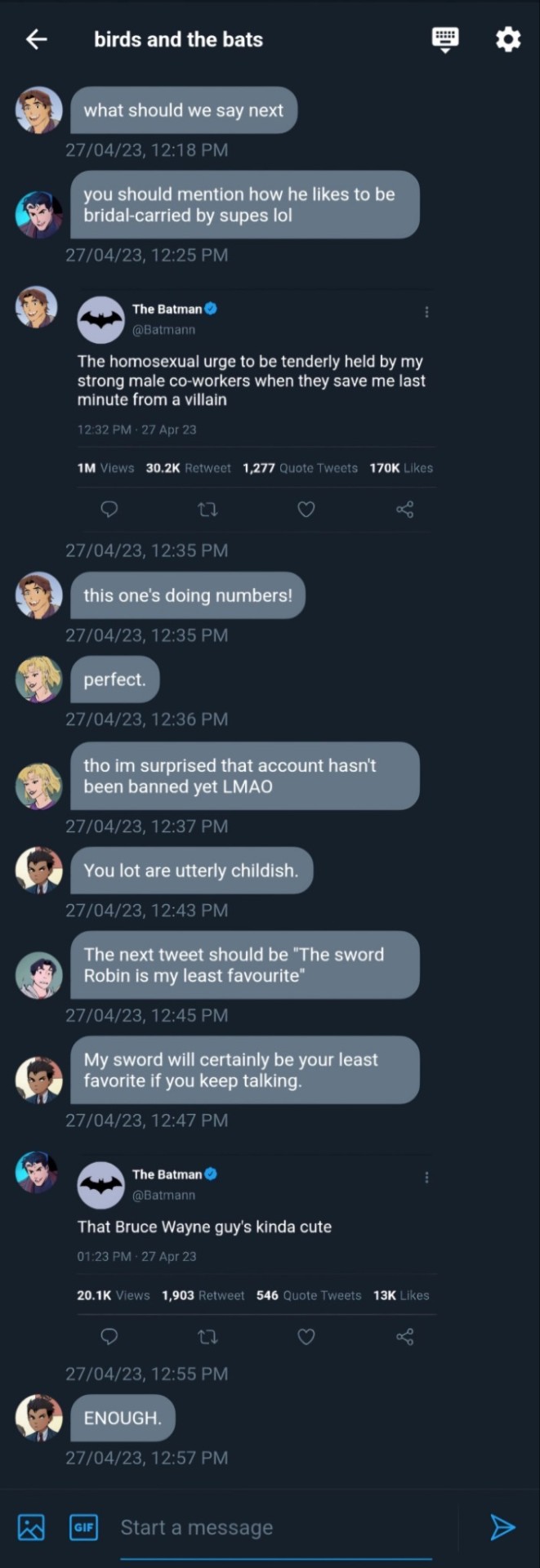
the muskification of twitter except it's lex luthor instead of elon lol
<- Prev Masterlist Next ->
#this is almost as bad as the time Lex luthor stole 40 cakes.#lex being the dc verse's elon is hilariously perfect#and gothamites are relentless so theyre probably having a field day with this#gothamites using every opportunity to dunk on metropolitans for having a shitty billionaire#the imposter accounts were run by kon and Lois lmao#the batkids are absolutely gonna impersonate each other so goodluck to bruce because the PR team's gonna be LIVID#social media au#the batkids later that day: Bruce you should totally buy tiktok#bruce: what? absolutely not im not spending money on a social media platform#batkids: but it'll make lex SO mad#bruce considering: hmm.#dick grayson#jason todd#bruce wayne#lex luthor#stephanie brown#batfamily#damian wayne#tim drake#batkids#batfam#batbros#batman#dc comics#incorrect quotes#crack#i spent an ungodly amount of time and effort on this please for the love of god dont make fun of me 😭#the script for this has literally been sitting in my drafts for over a year. i even did research on all the dates when this fiasco unfolded#texts#fanatical posting
7K notes
·
View notes
Text

Title: Crouching Figure of Atlas Artist: Baldassare Peruzzi (Italian, 1481-1536) Date: unknown Genre: figure study; mythological art Period: High Renaissance (Cinquecento) Medium: Pen and brown ink, over leadpoint or black chalk Dimensions: 20.6 cm (8.2 in) high x 13.4 cm (5.3 in) wide Location: Metropolitan Museum of Art
#art#art history#Baldassare Peruzzi#drawing#figure study#classical mythology#Greek mythology#Atlas#mythological art#Renaissance#Renaissance art#Italian Renaissance#High Renaissance#Cinquecento#Mannerism#Italian Mannerism#Italian art#16th century art#pen and ink#Metropolitan Museum of Art
2K notes
·
View notes
Text


Design for a wall decoration with peacock, cranes, and sunflowers for the restaurant in Hotel Langham (Paris), Emile Hurtré and Jules C. Wielhorski, 1896-1898, pen and black, blue, and metallic ink, watercolor, over graphite.
#watercolor#19th century#19th century art#art nouveau#belle epoque#paintings#interior design#french design#french art#period design#peacock#art#artwork#painting#design#the metropolitan museum of art#emile hurtre#jules c wielhorski#decoration#hotel langham#drawing#cranes
1K notes
·
View notes
Text
the eldest boy has arrived
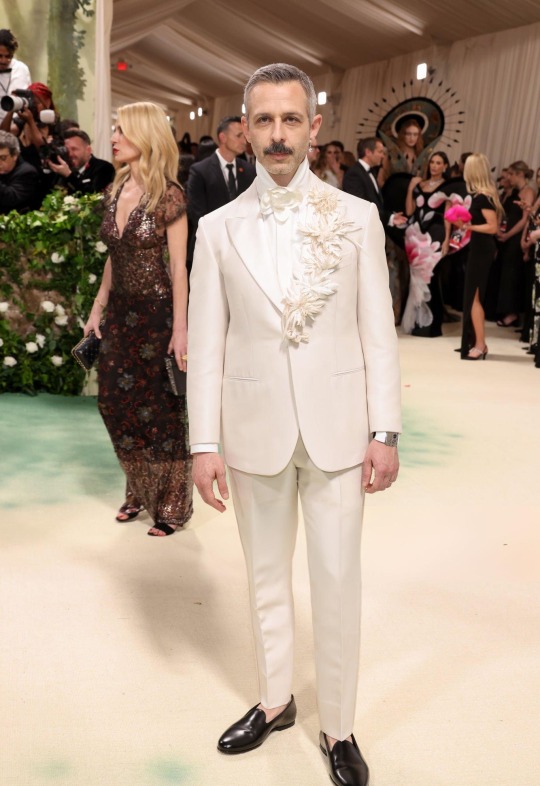
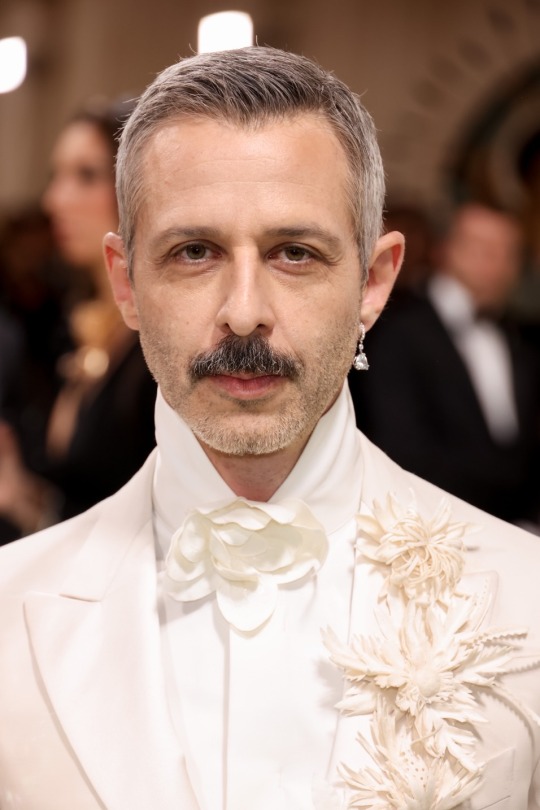
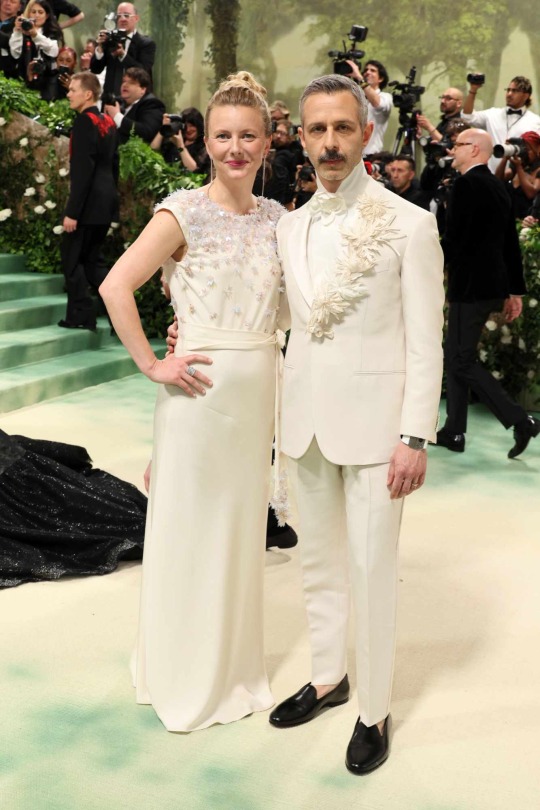
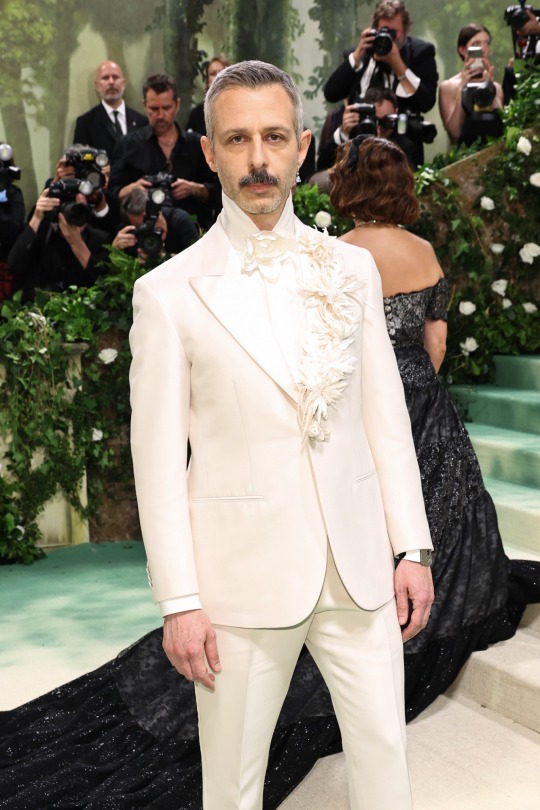
#jeremy strong#the met gala#the metropolitan museum of art#met gala 2024#met gala#succession hbo#succession#kendall roy#enemy of the people#an enemy of the people
3K notes
·
View notes
Photo

Textile with Brocade. 13th century. Credit line: Fletcher Fund, 1946 https://www.metmuseum.org/art/collection/search/468119
#aesthetic#art#abstract art#art museum#art history#The Metropolitan Museum of Art#museum#museum photography#museum aesthetic#dark academia
1K notes
·
View notes
Photo
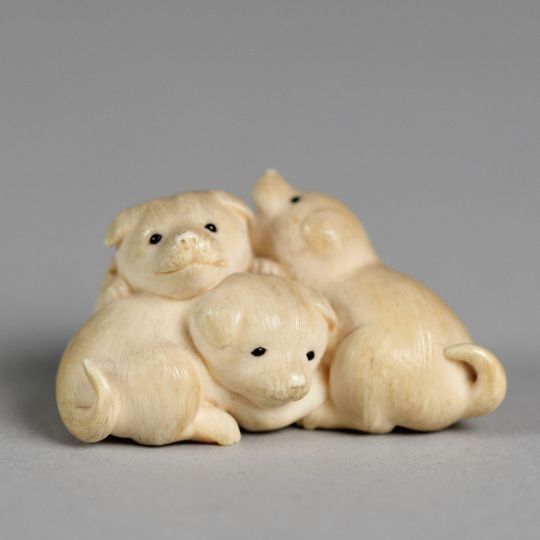
Three Puppies - Japan, 18th century
29K notes
·
View notes
Text

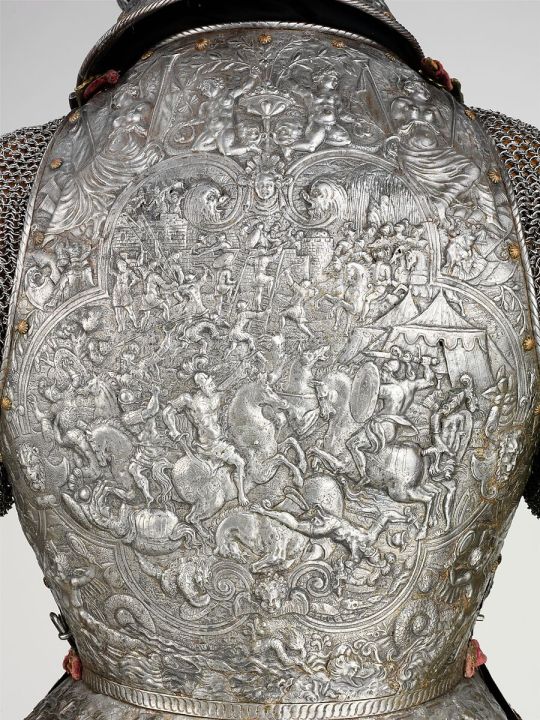
Portions of a Ceremonial Armor | French | The Metropolitan Museum of Art (metmuseum.org)
5K notes
·
View notes
Text
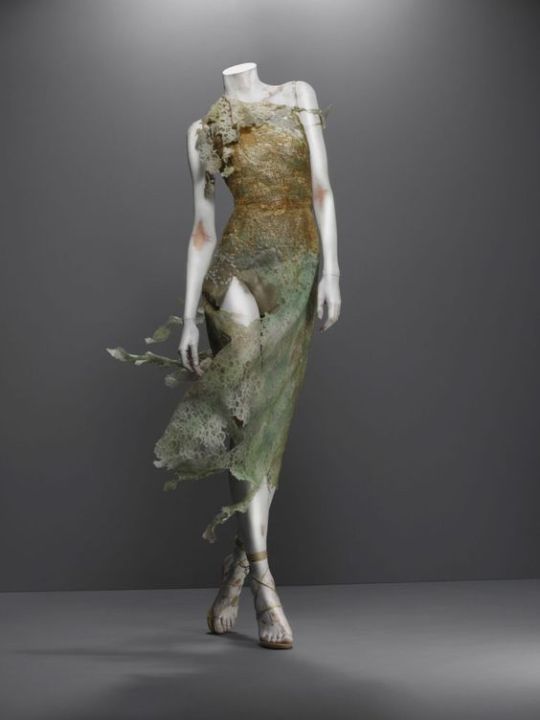

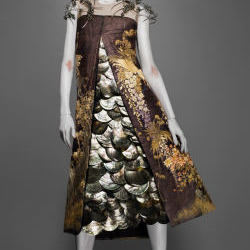
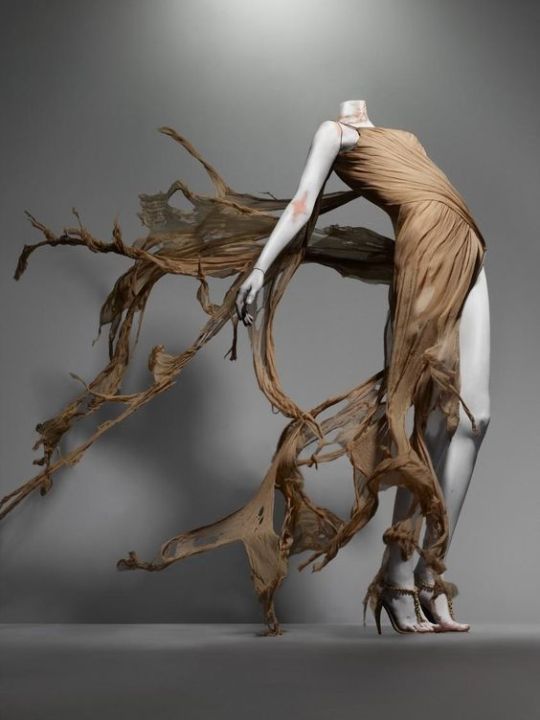
alexander mcqueen: savage beauty
#alexander mcqueen#savage beauty#fashion#runway#couture#metropolitan museum of art#art#up#aestethic#uplouds#first post of 2024 has to be mcqueen#art period
4K notes
·
View notes
Text


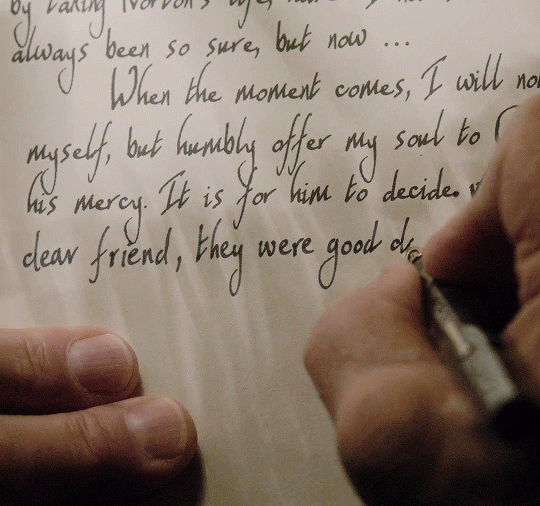







AGATHA CHRISTIE'S POIROT series final scene 13x05 "Curtain"
"Words really can't express how much that obsessive, kindly, gentle man with his mincing walk, his 'little grey cells' and his extraordinary accent had come to mean to me. To lose him now, after so long, was like losing the dearest of friends, even though I was only an actor playing a part." - David Suchet, Poirot and Me
#poirot#hercule poirot#david suchet#agatha christie#tvedit#userstream#tvgifs#chewieblog#cinematv#perioddramaedit#poirotedit#*edit#poirot 2x01: peril at end house#poirot 2x03: the lost mine#poirot 2x04: the cornish mystery#poirot 2x05: the disappearance of mr davenheim#poirot 4x03: one two buckle my shoe#poirot 5x08: jewel robbery at the grand metropolitan#poirot 13x02: the big four#poirot 13x05: curtain#poirot looking straight at the camera#and acknowledging the viewers#that have loved him for 25 years#as the final goodbye is incredibly moving <3
657 notes
·
View notes
Text
Rialto Bridge, Grand Canal, Venice, Italy: The Rialto Bridge is the oldest of the four bridges spanning the Grand Canal in Venice, Italy. Connecting the sestieri of San Marco and San Polo, it has been rebuilt several times since its first construction as a pontoon bridge in 1173, and is now a significant tourist attraction in the city. Wikipedia
773 notes
·
View notes
Text

Metropolitan Toronto Reference Library, Toronto, 1973-77.
Architect: Raymond Moriyama
#architecture#modernism#library#interior#Raymond Moriyama#Metropolitan Toronto Reference Library#Toronto#Ontario#Canada#1970s
6K notes
·
View notes
Text




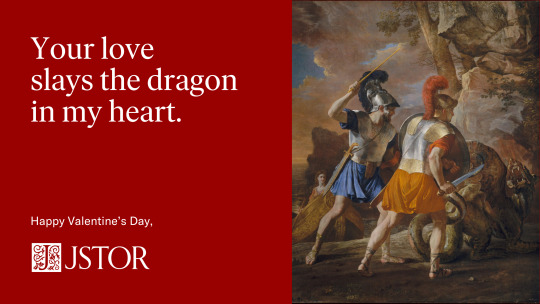
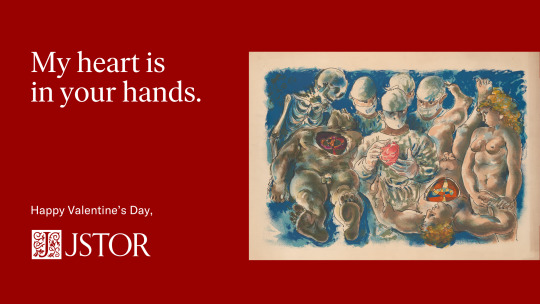


Roses are red, violets are blue... have some Valentine's Day cards, from JSTOR to you! 💌 Each card features a lovely image from Artstor on JSTOR. Images courtesy of Wellcome Collection and The Metropolitan Museum of Art.
2K notes
·
View notes
Text

Umbrella Pines in the Villa Borghese, Rome, William James Müller, 1839
#art#art history#William James Müller#landscape#landscape art#drawing#watercolor#Villa Borghese#British art#English art#Bristol School#19th century art#Metropolitan Museum of Art
1K notes
·
View notes
Text

Alexander McQueen "Savage Beauty" (2011)
679 notes
·
View notes